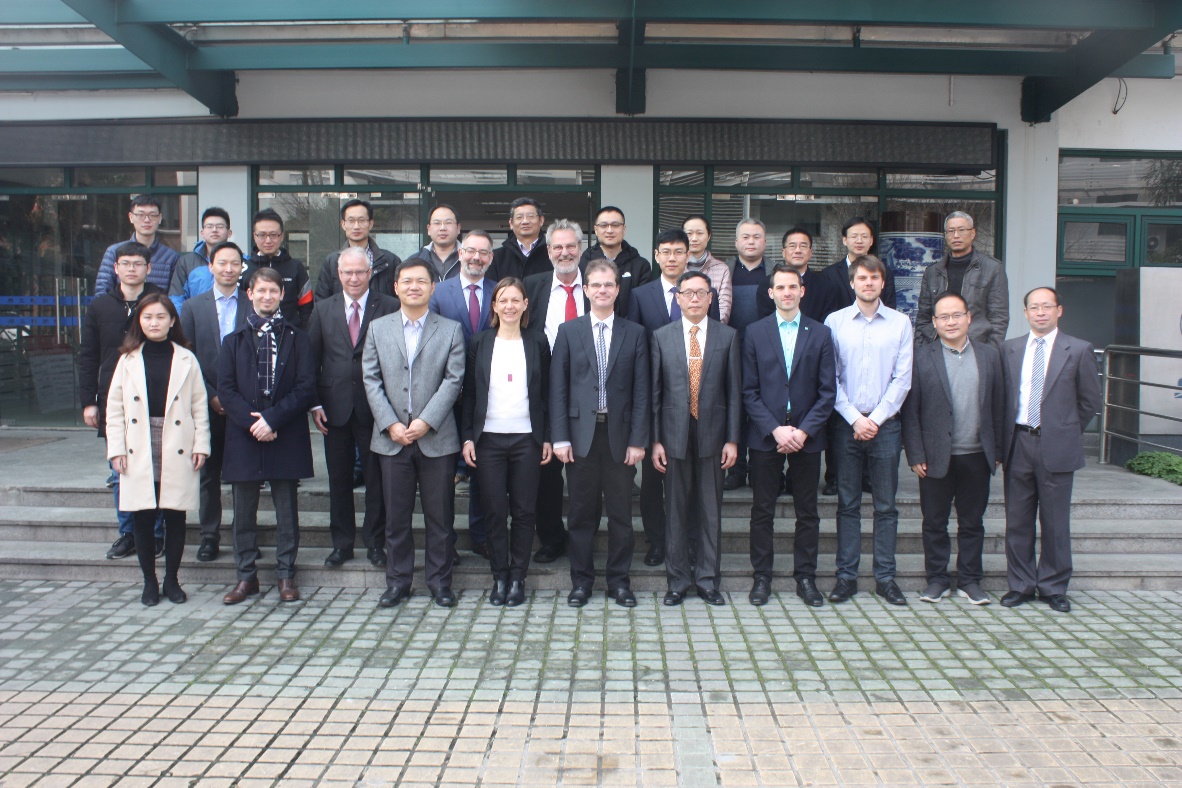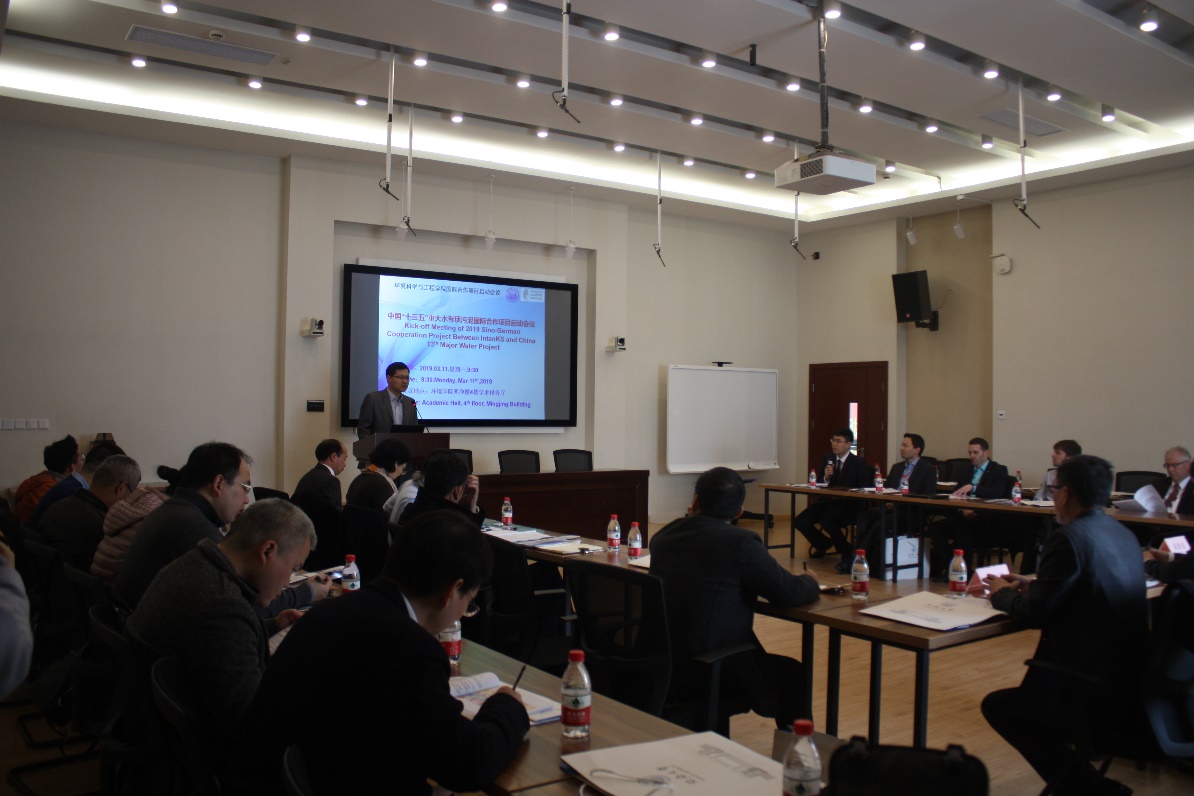On March 11-12, 2019, the Ministry of Science and Technology of the People's Republic of China (MOST), the Ministry of Ecology and Environment of the People's Republic of China (MEE) and the German Federal Ministry of Education and Research (BMBF) jointly held the "Launching Meeting of Sino-German International Cooperation Project on Water" at Tongji University . The conference was jointly led by the Office of Major Projects of the MOST and the International Cooperation Department of the BMBF. More than 50 representatives from Chinese and German government departments, research institutions, universities and enterprises actively attended the conference. Experts and scholars attending the meeting conducted in-depth discussions on the implementation and promotion of international scientific and technological cooperation on sludge treatment and resource utilization, and inspected Bailonggang Wastewater Treatment Plant, where the international cooperation pilot base is located, and the meeting was a complete success.

Water environment problem is a global concern. It is of great practical significance to strengthen international scientific and technological cooperation and solve major problems together. In 2015, the MOST and the BMBF signed the "Joint Intention Statement on Science and Technology Cooperation on China's Major Science and Technology Project of" Water Pollution Control and Treatment " and carried out a series of fruitful cooperative research under this framework. At present, China's major project of "National Water Pollution Control and Treatment Science and Technology Major Project" is in the critical period of carrying out "The thirteenth Five-Year Plan", and Germany's International Partnership for Sustainable Innovation (CLIENT) is also collecting and evaluating a new round of projects. Taking this kick-off meeting as an opportunity, China and Germany had frank exchanges and reached consensus on how to establish a more efficient cooperation promotion mechanism, cooperation priorities of "The thirteenth Five-Year Plan" and follow-up work objectives .

In the next few years, the Ministry of Science and Technology of the People's Republic of China (MOST), the Ministry of Ecology and Environment of the People's Republic of China (MEE), the Ministry of housing and urban-rural development of the People's Republic of China(MOHURD) and the German Federal Ministry of Education and Research (BMBF) will carry out more pragmatic exchanges and cooperation, focusing on the Beijing-Tianjin-Hebei region and the Taihu Lake Basin, and jointly select funding cooperation projects for bottleneck problems in water pollution control, establish an institutionalized cooperation mechanism, strengthen the substantive exchanges between policy makers, technology developers, and business managers of the two countries, and promote the implementation and effectiveness of international cooperation in the Sino-German water project.